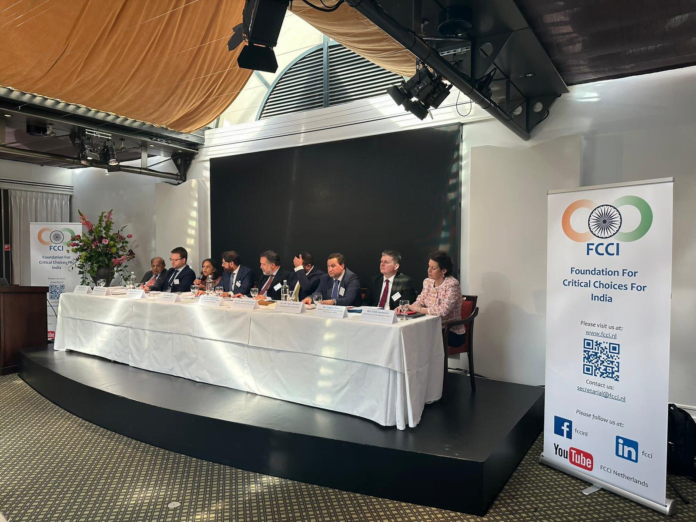
The Foundation for Critical Choices for India (FCCI) hosted a one-day International Conference in Wassenaar, The Hague Netherlands on May 3, 2023, where 19 experts on UN affairs, including several ambassadors, diplomats, international law experts, participants from the financial world came together to discuss necessary changes required for United Nations (UN) and United Nations Security Council (UNSC) reforms in the changing world order.
Jasbir Singh, President of FCCI, delivered the opening welcome address during the conference and explained the rationale why FCCI has picked up this timely topic of vital importance. This was then followed by a welcoming speech from Ritske Bloemendaal, the Deputy Mayor of Wassenaar, the Netherlands.

The conference proceeded with presentations on the themes “United Nations reforms for the changing world order” by Ram Lakhina, President Emeritus of FCCI and former Chairman of the Global Organisation of People of Indian Origin (GOPIO International), and FCCI’s vision on “UN reforms – with special focus on United Nations Security Council” by Dr. Pramod Agrawal, Vice President Programs of FCCI.
The inaugural address was delivered by Reenat Sandhu, Ambassador of India to the Kingdom of the Netherlands as a representative of G20 chair. The event was the result of a systematic study conducted by FCCI through several brainstorming sessions and a legitimate literature survey, which came up with several innovative ideas and suggestions for empowering the UN through its ‘One World’ approach of collective governance, with a special focus on reforms to the UNSC.
On this occasion, FCCI has released a comprehensive white paper that outlines its proposed framework for the necessary reforms of the UN.This is very special since there is no text or formula-based approach yet surfaced towards realisation of UN/UNSC reforms.
The aim of this international conference was to present FCCI’s findings, exchange views, and openly discuss much-needed UN reforms with representatives from veto-holding nations, G-4, G-20, C-10 nations, the EU, and other stakeholders. The discussions focused primarily on the UNSC and its role in maintaining global peace and security through peacekeeping and peace-building.
FCCI presented a set of innovative inclusive guidelines to make the UNSC more equitable in its representation and impart democratic principles in decision-making with an innovative concept of qualified Veto (Q-veto). Additionally, a mechanism has been proposed for making the UN financially independent for its effective global governance. Numerous distinguished guests shared their view during the event.
Panelists shared their views on the composition of permanent and non-permanent members, the implications of the P5’s veto power, the need to expand the number of members, collective governance, efficiency, financial resources, non-equitable representation, the balance of power, and discrepancies in composition. Several experts from the international law and finance spheres graced the event with their presence.
Around 100 individuals hailing from various countries registered and participated in this global conference. The event was an important step towards pushing further UN reforms without any biased approach and building consensus amongst the UN member states. The discussions were fascinating and thought-provoking, sparking an important conversation on the future of the UN and the role of the UNSC in a rapidly changing world.

